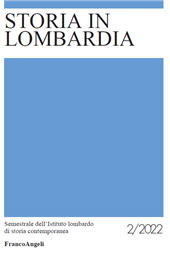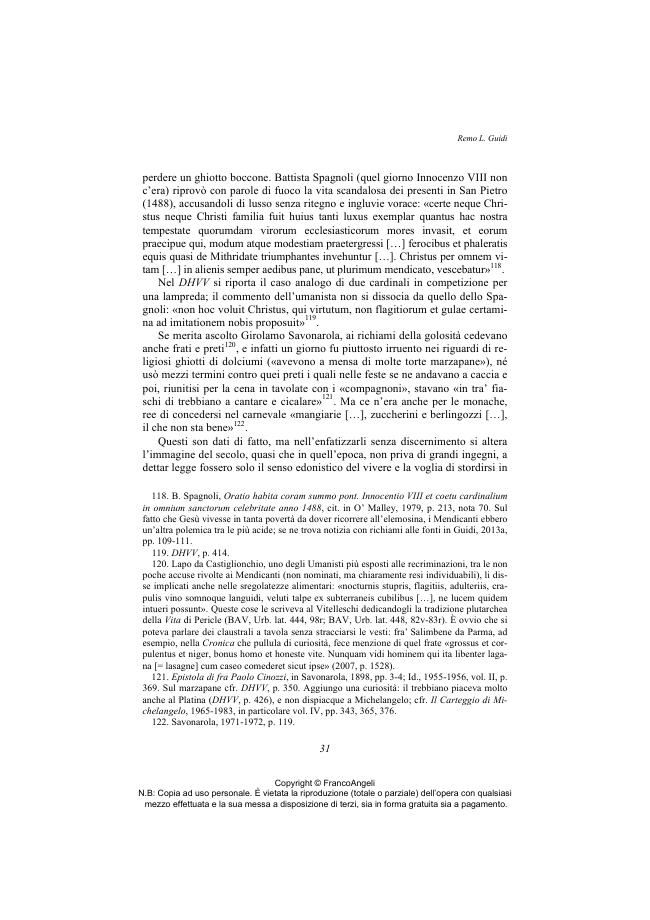I troppi non detti nel De honesta voluptate et valitudine del Platina
5-56 p.
Il De honesta voluptate et valitudine del Platina, dedicato al cardinale Bartolomeo Roverel la, altro non è che un ricettario di menu, con un target ben preciso, individuabile negli ad detti alla gastronomia, in quanti si dilettano di sperimentazioni linguistiche, o studiano l'evolversi dei costumi e dei festeggiamenti. Se non che l'umanista, ad apertura di libro, è sicuro di andare incontro a una serie di reazioni acide, che hanno poco a che fare con il suo progetto; e a opporglisi saranno i guardiani dell'ortodossia, alias i Mendicanti. Essi, infatti, troveranno incompatibili le sue preoccupazioni per la buona tavola, perché quanto appaga i sensi e promuove il piacere lo considerano occasione di peccato. Platina, però, non solo pubblica il libro, ma lo dedica a un cardinale, e questo potrebbe essere da parte sua (e indi rettamente anche del presule?) una provocazione, per opporsi a una interpretazione impro pria della vita, in nome di un cristianesimo arbitrariamente non solo restrittivo, ma punitivo.
L'articolo intende addentrarsi in questa materia, evidenziarne i motivi e rivelarne le ragioni. [Testo dell'editore].
Platina's De honesta voluptate et valitudine, dedicated to Cardinal Bartolomeo Roverella, is nothing but a recipebook for a menu with a precise target audience that we can indentify as experts in gastronomy in so far as they delight in linguistic experimentations or the study of the evolution of customs and forms of partying. Thus the author at the start of his book is sure that he is going to encounter a series of hostile reactions that have little to do with his project and that those opposing him will be the guardians of Orthodoxy, in other words, the mendicants. They, in fact, will find his preoccupation for the buona tavola incompatible with their moral teaching since insofar as the doctrine of buona tavola satisfies the senses and promotes pleasure, they will consider it an occasion for sin.
Platina, however, not only publishes the book, but also dedicates it to a cardinal; and this could be on his part (and indi rectly also on the part of the prelate) a provocation in order to place himself in opposition to an improper interpretation of life in the name of Christianity that is arbitrarily not only re strictive, but also punitive. This article will investigate the matter in depth in order to make clear the motives involved and their justifications. [Publisher's text].
Fait partie de
Storia in Lombardia : XLII, 2, 2022-
Articles du même numéro (disponibles individuellement)
-
-
Informations
Code DOI : 10.3280/SIL2022-002001
ISSN: 1972-5035
DISCIPLINES
KEYWORDS
- Platina, Umanesimo, storia dell'alimentazione, Quattrocento, Ordini Mendicanti, Bartolomeo Roverella
- Platina, Humanism, history of food, Quattrocento, mendicant friars, Bartolomeo Roverella



